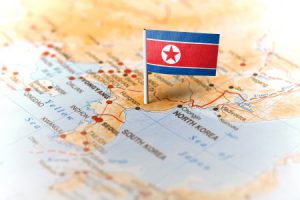
The cashless society is in full swing. Belgium leads the race as the world’s top cashless country, with other big players in the game such as China and Canada making headway closely behind.
In China for instance, retailers from extravagant shopping malls and conglomerate chain stores, to coffee shops and street markets, all merchants are accepting mobile payments.
North Korea is not a country one would expect to find on the list of cashless societies. According to Seoul-based online newspaper Daily NK however, the use of mobile phone credits as currency and a means for commercial transaction is becoming more commonplace.
Citing a source based in North Korea’s South Pyongan region who chose to remain anonymous, the journal stated that North Koreans utilising the telecommunications provider Koryolink can benefit from 200 minutes of phone calls a month against a few of 2,850 North Korean won every quarter.
The informant also notified the publication that these phone credits are exchangeable, with a growing number of people are utilising them as a substitute for cash. Users can send or receive credits via SMS messages, by entering the first three digits of the recipient’s number.
Several are using this service as a means for paying for goods, even at street markets, locally known as Jangmadang. Elsewhere, people are also making use of this method to transfer funds to others in remote areas.
While the service is growing increasingly popular, sources of the Daily NK are only based in a limited number of provinces, meaning that the trend may not have become as widespread as is hoped.
The news does mark a pivotal step for the isolated nation, and is evidence that the cashless craze is spreading even to the most unexpected regions in the world, such as Kenya, which is paving the way towards becoming a cashless society.
During a seminar held in December 2018 by South Korea’s Korea Institute of Finance, vice head of IBK Economic Institute Cho Bong-hyun discussed the necessity for North Korea to adopt such methods.
“The number of mobile phone subscribers in North Korea has reached about 6 million. Smartphones were also first launched in 2013, and there are as many as 20 smartphone products made domestically,” said Cho.
Cho added however, that although the smartphone trend is on the rise, the payment infrastructure still remains relatively weak.
He suggested that one of the ways of fortifying this infrastructure would be to install ATMs at airports, train stations, shops and buildings in locations of interest, encouraging people to make payments easily. Cho estimated that roughly 20,000 ATMs would be required in order to successfully implement the system. According to Cho, another approach would be to link smartphones to banks, as a means of promoting the mobile payment system.
Cho noted that if certain steps are taken, this will lay the groundwork for North Korea to develop a more comprehensive financial infrastructure.
